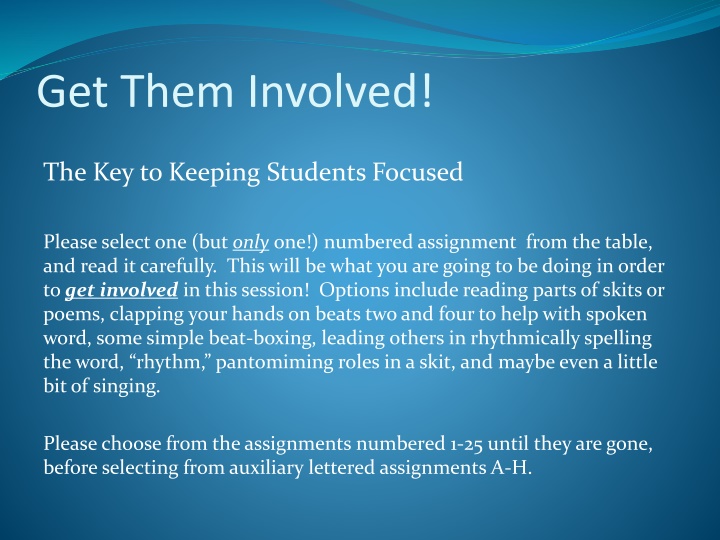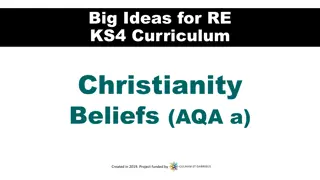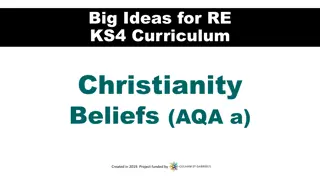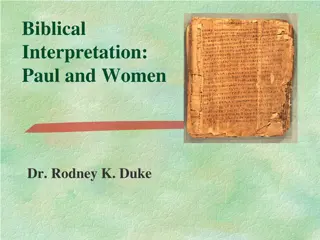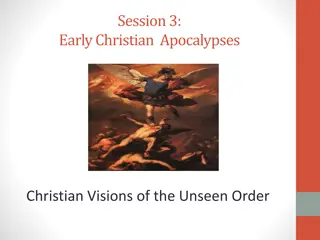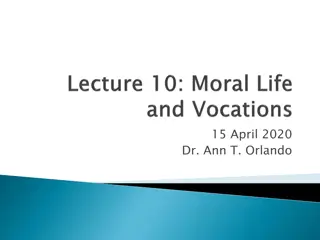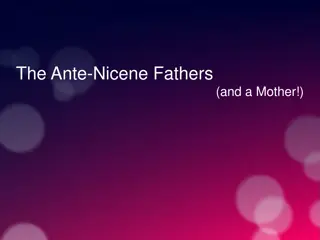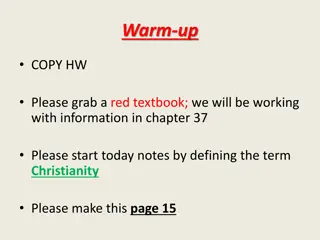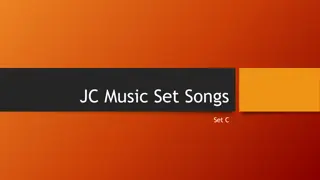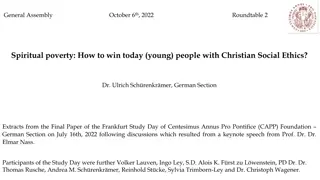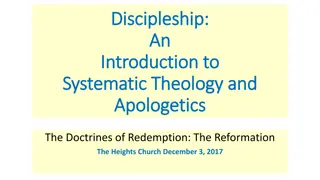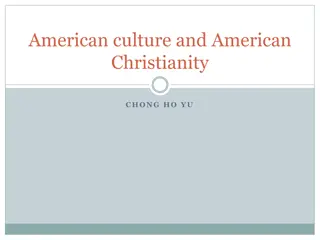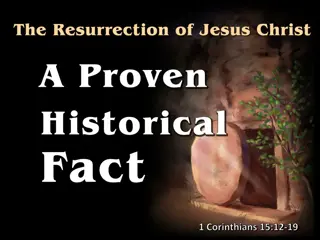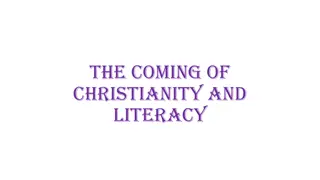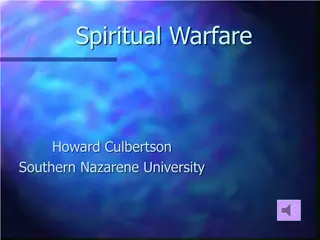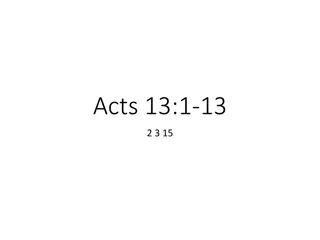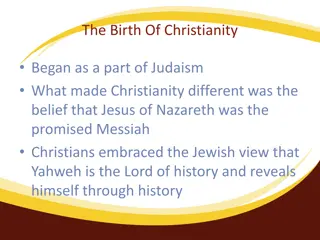Exploring the Rich History of Plainchant in Early Christianity
Dive into the world of plainchant, also known as plainsong, through a journey exploring its origins in early Christianity. Discover how it evolved from the Psalms into a form of worship, attributed to Pope Gregory for its organization throughout the liturgical year. Experience the echoes of mercy, grace, and love in the timeless beauty of this musical tradition.
Download Presentation

Please find below an Image/Link to download the presentation.
The content on the website is provided AS IS for your information and personal use only. It may not be sold, licensed, or shared on other websites without obtaining consent from the author.If you encounter any issues during the download, it is possible that the publisher has removed the file from their server.
You are allowed to download the files provided on this website for personal or commercial use, subject to the condition that they are used lawfully. All files are the property of their respective owners.
The content on the website is provided AS IS for your information and personal use only. It may not be sold, licensed, or shared on other websites without obtaining consent from the author.
E N D
Presentation Transcript
Get Them Involved! The Key to Keeping Students Focused Please select one (but only one!) numbered assignment from the table, and read it carefully. This will be what you are going to be doing in order to get involved in this session! Options include reading parts of skits or poems, clapping your hands on beats two and four to help with spoken word, some simple beat-boxing, leading others in rhythmically spelling the word, rhythm, pantomiming roles in a skit, and maybe even a little bit of singing. Please choose from the assignments numbered 1-25 until they are gone, before selecting from auxiliary lettered assignments A-H.
Just Plain Chant The genre known as plainchant also goes By plainsong, but the fragrance of this rose Is not diminished;
Just Plain Chant The genre known as plainchant also goes By plainsong, but the fragrance of this rose Is not diminished; matter not its name, Its beauty, pure and simple, stays the same.
The early Christians based it on their past, When, worshipping as Jews,
The early Christians based it on their past, When, worshipping as Jews, The Psalms were cast As melodies of praise to God above,
The early Christians based it on their past, When, worshipping as Jews, The Psalms were cast As melodies of praise to God above, The echoes of His mercy, grace, and love.
Pope Gregory is cited far and near For ordering the chants within the year;
Pope Gregory is cited far and near For ordering the chants within the year; The seasons, such as Christmas and Advent, Have their chants; so, too, Pentecost and Lent.
Their melodies, alone and unadorned, Without a beat, on ancient modes are borne.
Their melodies, alone and unadorned, Without a beat, on ancient modes are borne. From tyranny of time and meter freed, In Latin, they proclaim the Christian creed. (end)
R, H, Y, T, H, and M R, H, Y, T, H, and M, If they want you to spell it, then you give it to them; It goes, R, H, Y, T, H, and M, If they want you to spell it, then you give it to them.
Now some notes are shorter, and some notes are longer, And some notes are weaker, while some notes are stronger. A rhythm is better with diversity, Cause sometimes I need you, but sometimes you need me. It goes . . .
R, H, Y, T, H, and M, If they want you to spell it, then you give it to them; It goes, R, H, Y, T, H, and M, If they want you to spell it, then you give it to them.
All the note durations can be named with fractions, So know your division, if you wanna see some action. There are whole notes, half notes, too, And quarter notes, And eighth notes keep on movin through.
Dotting a note will increase it by half; It isn t that hard, but you gottado the math! You can add notes together just connect them with a tie, It involves a lot of counting, and that ain t no lie. Let me hear you now . . .
R, H, Y, T, H, and M, If they want you to spell it, then you give it to them; It goes, R, H, Y, T, H, and M, If they want you to spell it, then you give it to them.
Now the beat is steady, just like this; It keeps on beating. It don t miss. But the tempo is the speed of the beat Allegro, largo, moderato. Ain t it sweet!
Meter is the last thing that Ill tell you about; It s the way the beats are grouped, if you had any doubt. You start over with one when you hear a strong beat With an accent or a chord change when you re tapping your feet. EVERYBODY!
R, H, Y, T, H, and M, If they want you to spell it, then you give it to them; It goes, R, H, Y, T, H, and M, If they want you to spell it, then you give it to them.
Meters can be duple, like a marching band, Or triple or quadruple, even more on demand. Fives and sevens are real tricky, cause they seem out of whack, So they re not used too often. Hey, just trust me that s a fact. TAKE IT HOME NOW!
R, H, Y, T, H, and M, If they want you to spell it, then you give it to them; It goes, R, H, Y, T, H, and M, If they want you to spell it, then you give it to them. Wrap it up now! R, H, Y, T, H, and M! (end)
Oh, its opera for me, me mates, It s opera for me; No words are said, But sung, instead; It s opera for me. (Response): It s opera for me.
Oh, the Camerata Florentine, With its philosophizin , They thought the Greeks Did more than speak, And sought a new horizon. (Response): And sought a new horizon.
Oh, its opera for me, me mates, It s opera for me; No words are said, But sung, instead; It s opera for me. (Response): It s opera for me.
Oh, now Monteverdis Orfeo, In sixteen aught and seven, Began the art With a glorious start, And took it up to heaven. (Response): And took it up to heaven.
Oh, its opera for me, me mates, It s opera for me; No words are said, But sung, instead; It s opera for me. (Response): It s opera for me.
Oh, the scenry is spectacular, With sets and arches tall; Too bad it s done In Italian, Which I don t know at all! (Response): Which he don t know at all!)
But, its opera for me, me mates, It s opera for me; No words are said, But sung, instead; It s opera for me. (Response): It s opera for me.
Oh, the mythologic fairy tales Were all the rage in Venice, But divas had, By acting badly, Made the stage a menace. (Response): They d made the stage a menace.
Oh, its opera for me, me mates, It s opera for me; No words are said, But sung, instead; It s opera for me. (Response): It s opera for me.
Oh, the rectative is speechy-like, And good for conversation; The aria is a beautiful tune, And gets a grand ovation. (Response): And gets a grand ovation.
Yes, its opera for me, me mates, It s opera for me; No words are said, But sung, instead; It s opera for me. (Response): It s opera for me.
Castrati played the leading roles, They sang in op ra halls;
Castrati played the leading roles, They sang in op ra halls; I don t know why They sang so high
Oh, its opera for me, me mates, It s opera for me; No words are said, But sung, instead; It s opera for me. (Response): It s opera for me. (Big ending): It s opera for me! (end)
Opera, oratorio some find them so confusing; They have so much in common that it s really not amusing. They both require an orchestra to help support the voices, And when they re done, There s lots of fun, and everyone rejoices!
The operas focus? Secular. that means it s not religious; There usually is a murder scene which is, of course, malicious. Another common theme involves a sexual attraction That s doomed to failure from the start, thus heightening the action.
In contrast, oratorios are sacred in their outlook; They tell the story of a prophet, often from the Good Book. Elijah, Jephtha, Christ, and Paul are subjects who are favored; Heroic lives inspired the notes o er which composers labored.
The operas, by tradition, in Italian are written; That rule prevailed when Handel wrote his operas in Great Britain.
The operas, by tradition, in Italian are written; That rule prevailed when Handel wrote his operas in Great Britain. But oratorios are in the language of the nation; To understand the lyrics is the prime consideration.
The staging, costumes, sets and props, as well as serious acting, Are all a part of operas, whose directors are exacting;
The staging, costumes, sets and props, as well as serious acting Are all a part of operas, whose directors are exacting; But standing tall in concert black, and singing from a folder Are standard oratorio fare. Perhaps, it s slightly colder.
The arias in the operas are often deeply moving. They stir the soul and draw the tear, with audiences approving;
